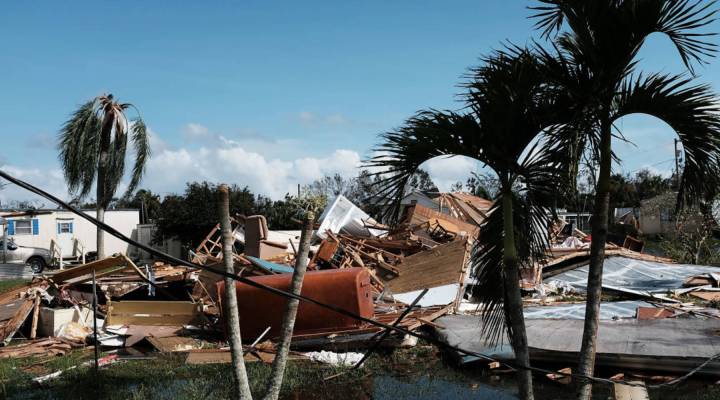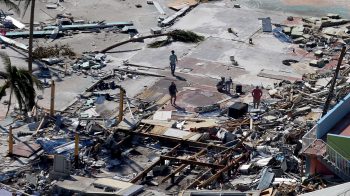
Mayor of Naples, Florida, unfazed by hurricane damage
Mayor of Naples, Florida, unfazed by hurricane damage

2017 was full of natural disasters. They didn’t seem to let up — fires in California, floods in Texas, hurricane after hurricane in the Caribbean and on the Gulf Coast. The media moved on quickly, but recovery efforts are long from over. We talked to local officials in five American cities and territories about their hopes and objectives in the coming year. Check out the rest of our series here.
Like other locations slammed by natural disasters in the last year, Naples, Florida, would like to see both residents and tourists return to its shores. Hurricane Irma prompted a mandatory evacuation of the city in August; 142-mph winds slammed the airport and neighborhoods flooded with storm water that harmed the city’s distribution lines.
Naples Mayor Bill Barnett says the city is now moving forward despite a dip in housing sales after the storm. Barnett was interviewed about his city’s recovery in November. Below is an edited transcript.
Kimberly Adams: So you’re past the main cleanup efforts at this point. What are you focused on these days?
Barnett: We are past the cleanup, a lot of debris, and we are moving forward. We’re really focused on the tourism season, which we don’t think at this particular time will be impacted at all if any.
Adams: Housing sales in the area also took a hit, especially in September in and around the storm. Where’s your thinking on this — is this a short-term blip, or something to think about in the long term?
Barnett: I think it is definitely a short-term blip. I have many friends that are in the real estate business and that are realtors, and they’re getting busy as of now. I think that what you’re going to see is, sure, there might be some people after this hurricane that said “listen, we want out of here.” But I think that there are just as many, if not more people, that will say, “oh it’s a good time for us to to purchase down there because it is beautiful, and hopefully we won’t see another hurricane for years to come.”
Adams: Are you concerned at all that with so many tropical storms and the intensity of them, and all of the reports from different scientists, including the Trump administration, about the human impact on global warming that people might start looking at property in your city and wonder if it’s really worth it to have beachfront property at this point?
Barnett: Well, I really and truly don’t, until there’s an indicator that’s going to show me or tell me otherwise in Naples, Florida. I see no indication at this particular time that that is going to happen or that would be a possibility in the city, especially about beachfront property. I think that the people that come down here and move to the city of Naples or in Naples, Florida, generally, are thinking maybe along the lines, like, yes there have been a lot of tropical storms. But if you look back on the history of Naples, we haven’t had a lot of them and certainly direct hits. The last really direct hit that we had was Hurricane Donna prior to Irma, and that was 1959-1960. So I think if you’re looking at the track record and saying, you know, just how safe is Naples — we are generally pretty safe.
There’s a lot happening in the world. Through it all, Marketplace is here for you.
You rely on Marketplace to break down the world’s events and tell you how it affects you in a fact-based, approachable way. We rely on your financial support to keep making that possible.
Your donation today powers the independent journalism that you rely on. For just $5/month, you can help sustain Marketplace so we can keep reporting on the things that matter to you.

















